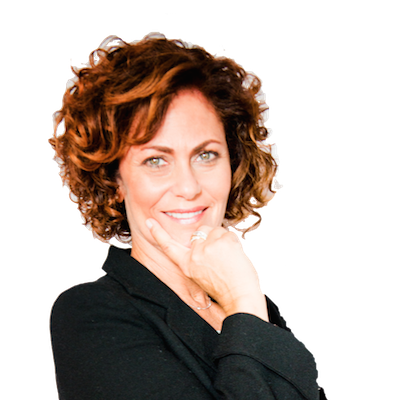There’s a reason books like The Purpose-Driven Life have turned into a profit-making empire—we as a culture are obsessed with the concept of purpose. It sells well because who doesn’t want a sense of purpose? We all grasp for meaning; we all seek clear direction, but sometimes, I’ve learned, the pursuit of “purpose” can be more distraction than guidepost. Consider phrases like, “The purpose of life is a life of purpose.” Just hearing that makes me dizzy. Walk down any self-help aisle, and you’ll find titles and phrases like this abound. But, more often than not, the problem is that they’re counterproductive, if not downright obstructive.
I have had countless clients come to me, people with tremendous wisdom, passion and courage, all befuddled by this quest to find their purpose. “I’m no Mother Teresa,” so many of them say. Well, Mother Teresa would be relieved to hear that. She best understood that “purpose” as a grand quest could be counterproductive. “Not all of us can do great things,” she said. “But we can do small things with great love.
“Don’t get me wrong. I know that a sense of meaning and purpose is foundational. It’s central to my work as a leadership coach. It comes as no surprise that a recent survey of more than 26,000 LinkedIn members in 40 different countries found that having a sense of purpose at work is a tremendous motivator and predictor of things like higher job satisfaction and feelings of fulfillment.
But obsessing over the importance of “Big P” Purpose—the grandiose, “save the world” kind—can miss the target. Few of us will change the world, much less save it, but we can do our small part as Mother Teresa suggests. It’s just as important to have ‘little p’ purpose as it is to find your “Big P” purpose. Little p’s add up. What is “little p” purpose? It can be whatever brings you joy—for me, that means time spent in my garden, then sharing the literal fruits of my labor. For my friends Karen and Jim, it’s shopping for those who can no longer get out on their own; for my niece Lily, it’s wearing recycled clothing. What does “little p” purpose look like to you?
When we become overly focused on striving for something worthy of capital letters, we can begin to feel out of touch with the essential and important sources of meaning in our lives. As a result, we can become blind to opportunities right in front of us.
Don’t Get Stuck on Purpose
Don’t let yourself be fooled by how ‘together’ others may look on the outside; we are all finding our way. Most of us are traveling along on a “little p” path, while some of us might be blazing forward on a “Big P” Path, but I assure you, the traveling is easier if you don’t drag judgment along. It’s easy to get stuck thinking you’re inadequate or not “purpose-driven” enough. So, try withholding judgment of what others find purposeful, and perhaps most importantly, don’t be a harsh judge of your own choices. It’s okay if your sense of purpose is simple. Today it might be cleaning your closets; tomorrow, maybe it’s helping a friend. One day you might get wind of something larger happening in your community that feels like your passionate call to action, and then you’ll be ready.
Know When It’s Time for “Big P” and “little p” Purpose
Here’s one thing I do know about purpose—it’s not one-size-fits-all—our sense of purpose shifts throughout our lives. For young parents caring for infants and toddlers, purpose looks like a fresh stack of diapers and a nap—much different from what it is for those not in a caregiving stage.
Middlescence can be a particularly challenging time to feel purposeful. Too many of us have bought into an ageist, self-sabotaging narrative that associates midlife as the beginning of the end—a time of waning MOJO and awesomeness. Too many people come to me worried that it’s too late to re-write their script and to recalibrate their commitment to purpose. The truth is there is no “Sell By” date limiting your usefulness when you have decades of life and leadership in front of you.
“From the very core of our being, we desire contentment.
Since we are not solely material creatures,
it is a mistake to focus on external development alone
all our hopes for happiness. The key is to develop inner peace.”
-Dalai Lama
Our Purpose Finds Us
Consider Gunther’s story. In his 20’s and 30’s, Gunther was happily married, had two kids, he even trained for marathons. But at 43, things started to change. The company he worked for nosedived, finances became a real challenge. Gunther lost confidence and began to feel depressed. He struggled to stay positive as he realized the life he’d planned wasn’t the life he was living. A year ago, he sent me this note:
“You know, Barb, when I was younger and newly married, my hopes and dreams were endless… [now] I find myself thinking my choices are limited; my story is written.”
I learned his wife encouraged him to attend a pricey two-day retreat on “Finding Your Purpose.” Conflicted, he sought my advice.
“I’ve been so stuck for the past few years. I need to get back to work with an income, but I have a sense that I need to be doing something I care about…at least a little. Maybe I’d find my sense of purpose and get unstuck?”
My reply? “Gunther, don’t get stuck on purpose.”
Don’t Get Stuck on Purpose
Purpose can be so big and lofty that it obstructs what’s right in front of us. The truth is that more often than not, our purpose finds us. It evolves when we live in sync with our values and know ourselves more fully.
We uncovered parts of Gunther’s life he considered interesting but unimportant—like his love of cigars, golf and designer glasses. He decided against attending the seminar; instead, Gunther started to experiment. He created a cigar business while also having some more consistent income from—working in a golf pro shop.
For the first time in years, Gunther didn’t feel stuck.
That lasted for a while. But, alas, this is a real story, so it doesn’t fit into a tidy package. Gunther found that being an entrepreneur in California was expensive and stressful, and this, plus some family obligations made his dream cumbersome. So he and his wife moved to North Carolina to be closer to their daughter and reduce financial strain. Now in his 60’s he’s decided to drop the cigar business and enjoy the cadence of work at a golf club that better fits his little p purpose. He interacts with and feels he has a positive impact on his community, and he is better for it.
The upshot: When we’re motivated by something greater than a paycheck, our lives become more meaningful, we’re happier, and we’re more likely to behave in ways that benefit ourselves, our families, and the world around us. As Frederick Buechner said, “Your vocation in life is where your greatest joy meets the world’s greatest need.” When you find that sweet spot, things shift. You’re in the flow. Tasks feel effortless. Big things begin to happen, like feeling joy.


